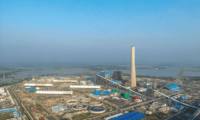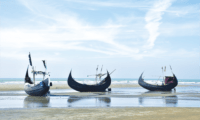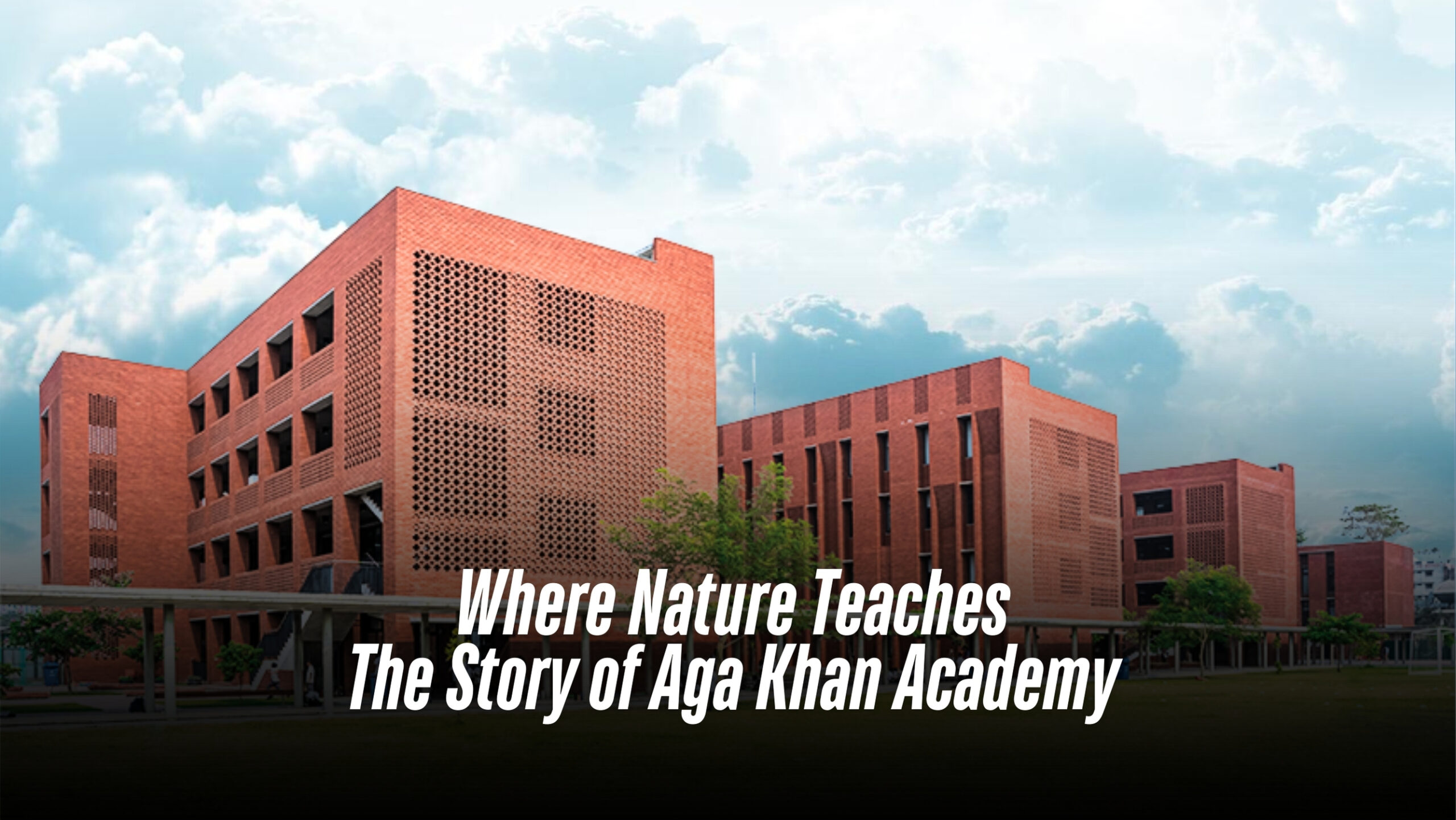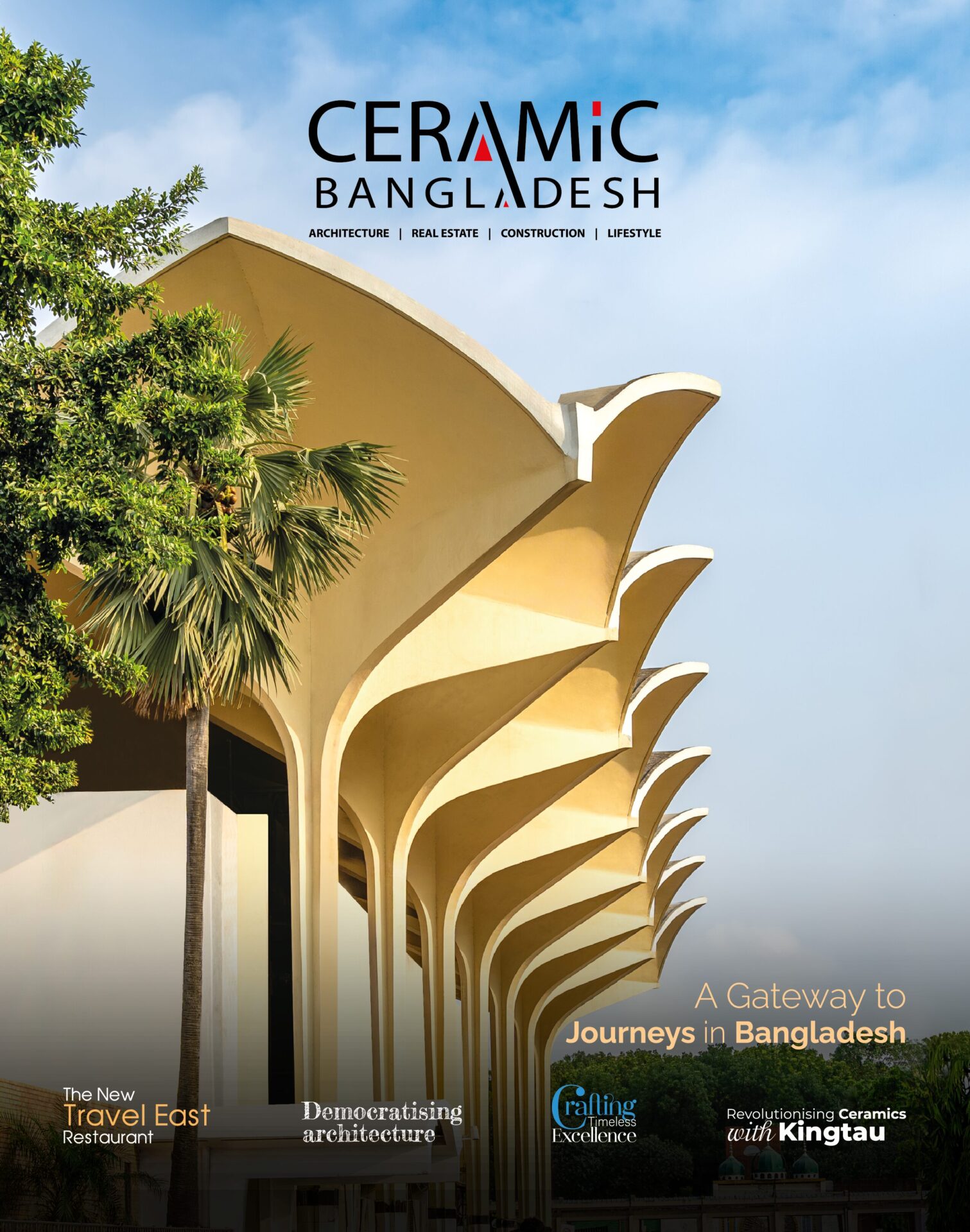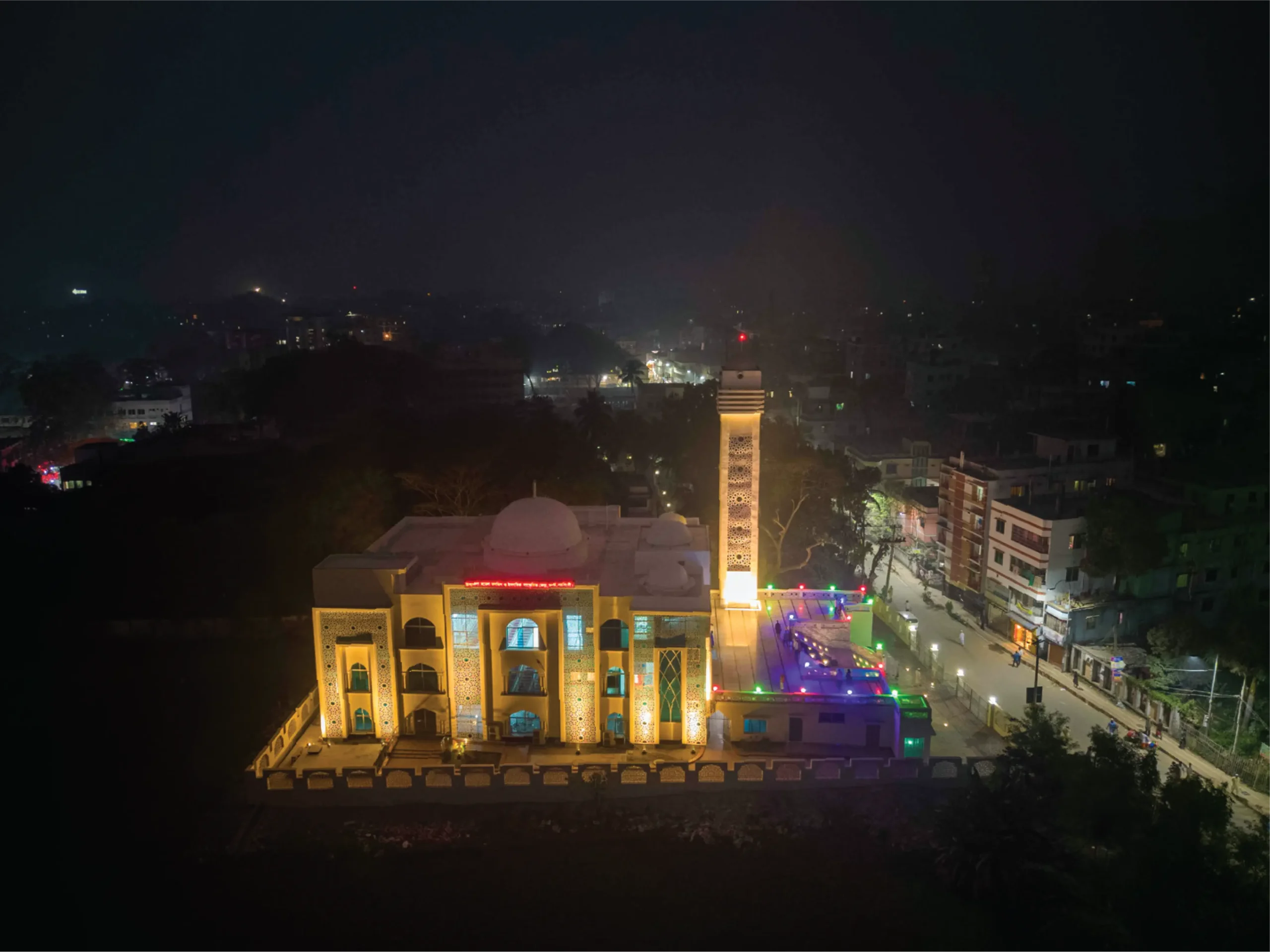
Mosque is not just a place of worship for Muslims; it’s the common most place of meeting and congregation of the followers of the religion of peace, Islam. It’s not only a holy place; it helps spread the message of love, friendship and brotherhood. Mosque is not merely a place that involves spirituality but also deals with worldly affairs; It’s more than that.
Mosque is the place of Allah, the best place on earth for the best creation of the Creator. Muslims pray here five times a day, Salah which is one of the foundations of Islam. Muslims try to reaffirm relationship with Allah every five times a day and on every Friday and thus keep in touch with brothers. Given the role of mosque in Muslims’ religious performance, the Muslims’ relationship with it is unique: the daily life of a devout Muslims is closely related to the mosque. It’s the cultural centre of Islam and a Muslim leads life around the mosque. The passion for mutual cooperation expressed at mosques helps build a caring and empathetic society.

 Mosques are built wherever Muslims live in the world. There are more than 4 million mosques in the present world and Bangladesh houses about 350,000 mosques. And there are about 8,000 mosques in greater Dhaka city, which is thus called the city of mosques. Baitul Mukarram is the national mosque. If we compare the land and population size with the number, Bangladesh has the highest concentration of mosques. The holy book Al-Qur’an has declared the mosque as the center of guidance. Allah says, “Surely the f irst room that was established for mankind is the house that is located in Makkah. That house is blessed and a guide for all the people of the world.” (Surah Al-Imran, verse: 96). Allah has made the world’s first mosque, the Holy House, the Kaaba, a centre for human welfare activities. (Surah Ma’idah, verse: 24). Allah has commanded the mosque to be exalted and his name to be pronounced in it.
Mosques are built wherever Muslims live in the world. There are more than 4 million mosques in the present world and Bangladesh houses about 350,000 mosques. And there are about 8,000 mosques in greater Dhaka city, which is thus called the city of mosques. Baitul Mukarram is the national mosque. If we compare the land and population size with the number, Bangladesh has the highest concentration of mosques. The holy book Al-Qur’an has declared the mosque as the center of guidance. Allah says, “Surely the f irst room that was established for mankind is the house that is located in Makkah. That house is blessed and a guide for all the people of the world.” (Surah Al-Imran, verse: 96). Allah has made the world’s first mosque, the Holy House, the Kaaba, a centre for human welfare activities. (Surah Ma’idah, verse: 24). Allah has commanded the mosque to be exalted and his name to be pronounced in it.
The first thing that prophet Muhammad (pbuh) paid attention to after the Hijrah was to build a central mosque. This mosque was the heart of Madina state. All the activities of the state of Madina were conducted from the Mashjid-e Nabobi (Prophet’s Mosque). It was the mosque that the Prophet (pbuh) used to train the Sahaba, consult with them, issue rules, run administration and deliver justice, form Army, send troops to war, send messengers for inviting to Islam; Even cultural, economic, family, social, state – all activities were run and problems solved from this mosque. Mashjid al-Nabobi was not just a place for private worship and zikir-azkar unlike practice in many cases.
If the mosque has social service work like a charity and zakat fund, through this, various types of the helpless poor can be supported. Support can be provided to someone not being able to afford medical expenses, get employment. Such activities around the mosque could have encouraged many other people. The lost glory could have been revived.
In such a context, the government of Bangladesh is building 560 model mosques across the country. Besides, with the funding of the Saudi government, an initiative has been taken to construct an iconic mosque in the Purbachal in Dhaka and in each divisional city.
The model mosques which are being built by the Bangladesh government are expected to help spread the essence of Islam and its inspirational practices and culture to all irrespective of their religions and castes. Alongside spreading Islamic values, the mosques would play vital role in creating awareness about social ills like drug menace, repression of women and children, sexual abuse, and dowry.

These mosques are providing more facilities for devotees compared to general mosques as there are Islamic library, training centre for imam, registration centre for hajj pilgrims, Hafezi madrasa, bathing place for the dead, and prayer room for the women, old and people with disability as well as big prayer space for all.
The model mosques are designed to follow world-class mosques particularly of Arabian countries, that have multipurpose centres. They are attractive for their architectural design and facilities.
In 2014, Prime Minister Sheikh Hasina took the initiative to establish model mosque in every district and upazila level. Later, the Ministry of Religious Affairs prepared a project for construction of 560 Mosque-cum-Islamic Cultural Centres at district and upazila levels involving an estimated cost of Tk 9,435 crore. Now, Islamic Foundation under the Ministry is implementing the project and its implementation period is between April 2017 and June 2024.
The authorities have already inaugurated 150 mosques out of 560 and another 200 will be inaugurated by next December. The mosques have been built in three categoris – ‘A’, ‘B’, and ‘C’. A total of 69 ‘A’ category mosques with four-storied building having elevator facility and a floor space of 2,360 square metres each are being constructed in 64 districts and city corporation areas. As many as 475 ‘B’ category mosques are being built with a f loor space of 1,680 square metres each. And under ‘C’ category, 16 mosques will be built in coastal areas with a floor space of 2,052 square metres each. The mosques are being built as four-storied buildings at the district level, three-storied at upazila level, and again four-storied in coastal areas.
A lot of ceramic tiles and marble are being used in these mosques. Each mosque is being built on at least 0.50 acre of land. An average of Tk 17 crore is being spent on the construction, inclusive of furniture, of each mosque at the district level and Tk 15 crore at the upazila level.
Model Mosque concept
Building mosques, Islamic academic and institute is part of Bangladesh’s tradition and political pledges reflected in laws as well. To implement the initiative of building model mosques, the Sheikh Hasina government tried to collect funds. She held talks with the Saudi government during the visit to Saudi Arabia in 2016. Then, Saudi Arabia promised to provide assistance to Bangladesh for building mosques-cum-Islamic cultural centres. Later, an announcement was made that the Bangladesh government would provide Tk 892.62 crore out of the total project cost of Tk 9,435.41 crore while the rest will come as grant from Saudi Arabia. The project was supposed to be implemented from April 2017 to December 2019. Afterwards, Premier Sheikh Hasina announced the model mosque will be gift to the nation marking the Mujib Borsho, the birth centenary of Bangabandhu Sheikh Mujibur Rahman. These mosques will be a place of tranquility. These mosques will be followed in the construction of future mosques.
Bangladesh earned 530 vori gold and Taka 56 crore : DG
About 92 per cent of 170 million Bangladeshi people are Muslims and almost all the mosques in this country are established and managed with financial support of the local people. But at the district or upazila level, there are hardly any beautiful mosques or structures of Muslim tradition with modern facilities. Considering these, for the purpose of promotion of Islamic values and development of Islamic culture, an initiative is taken to build these model mosques and Islamic cultural centres in each district and upazila. This is the first time the government has taken such an initiative to provide direct assistance here, said the Director General of Islamic Foundation, Munim Hasan.

The Director General, however, mentioned that several issues such as establishing mosque, Islamic academic and institute in every district were raised in law of the land. Finally on April 15, 2017, the executive committee of the national economic council (ECNEC) approved the project on construction of 560 model mosque-cum-Islamic cultural centres at district and upazila levels at a cost of Tk 9,062 crore. A total of 440,440 men and 31,400 women would be able to offer prayers, and 34,000 people read books at a time in the 560 model mosques library, he said. It has accommodation facilities for 2,240 domestic and foreign guests with research facilities for 6,800 researchers per day and pre-primary education for 17,000 children every year. Besides, 14,000 students are expected to become Hafiz of Quran every year once all mosques are completed.

“Every year, we send our Hafez to international competition. Since 1994, around 200 Hafizs received international awards. In 25 years from 1994 to 2019, 200 Bangladeshi contestants selected through the Cultural Department of Islamic Foundation in various countries including Saudi Arabia, Kuwait, Qatar, the United Arab Emirates, Iran, Jordan, Turkey, Egypt, Algeria, Libya, Gambia, Malaysia, India, Pakistan and the Maldives for international Hifz, Qiraat, Tafseer, Imam and Muballig competitions, where many of them were awarded at various levels including 1st, 2nd, 3rd position bringing 530 vori gold medals to the country and also foreign currency equivalent to Taka 56 crore. We will make a list of the awardees. Later, we will give awards them at a gala ceremony this year.”
He also said promotion of communal harmony and religious values, elimination of terrorism and extremism, e-Hajj management, supervision of waqf properties, management of Imam-Muazzin welfare trust, collection and distribution of zakat, training of religious leaders, construction and development of religious institutions, research and publication, celebrating national and religious festivals, and imparting religious and ethical adult and pre-primary education are the main activities of the Islamic Foundation. This model mosque will help in carrying out these activities at the grassroots level. By December this year, we want to complete 350 mosques. We hope that all mosques will be completed by 2024. It is a big initiative. There is no state leader of the world who took such an initiative to build the mosque by state.

Meanwhile, “we made a plan to conduct survey across the country to see how many mosques are there in the country and what are their income sources? Who are in the committee? The list will be published in our website so that the government and foreign counties can aid them easily,” the DG said. The survey on mosque will start by this year. Islamic foundation’s staffs will conduct it on around 3.50 lakh existing mosques across the country, he added.

The project director (PD) Engr. Md. Nazibar Rahman said to Ceramic Bangladesh that not only prayer facility but also all other facilities including library, training centre, Hifza division, guest house, modern bathroom for the dead, and registration facility for haj pilgrims will be there in the model mosque. Some 1100 people will be able to offer prayers together at four-storied mosque while 800 at three-storied mosque. Some 100 women will be able to offer prayers together at each mosque. People can get primary Islamic knowledge if anyone enters in the mosque. The mosques will be controlled by Islamic Foundation under the religious affairs ministry. Main feature of the construction is that it is made entirely of local materials. It has nothing to do with foreign purchases. During implementation of the project of model mosques, some challenges arose, particularly when the authorities went to select place and acquire land. Price-hike of raw materials has made another challenge.
A total of 7,332 people will be directly employed at 560 mosques and 13 staffers including Kahtib, Imam, Moazzin and Khadim will be employed at each mosque. The process is still going on. However, the Ministry has already formed a temporary committee with the Deputy Commissioner as president at district level and UNO as the president at upazila level. They will appoint the employees at the mosques. The government will pay salary to all temporary staff. Later, Permanent employees will be hired by the public administration and finance ministries. Some 73,000 teachers are working now to provide mosque-based mass education under Islamic foundation across the country. The seven phases of mass education based on mosques will be completed by 2024 as well.
The use of ceramics at Model Mosques A good number of ceramic companies including Great Wall, RAK, Akij, DBL and Fu-Wang supplied different types of ceramic products for construction of the model mosques. Deputy General Manager (head of marketing) of Great Wall Ceramic Industries Ltd Ziaur Rahman said they have supplied more than 80 per cent ceramic products in different mosques across the country. He added that different ceramic companies displayed their products to the project director (PD) office and the authorities selected their products. Talking to the Ceramic Bangladesh, Deputy Manager (corporate) of Akij ceramics Md. Rumel Yestiack Khan said they supplied their products at 50 mosques. “We have supplied floor and wall tiles in the mosque.
Interview of chief architect
The Managing Director of Trimline Consultants Ltd. and chief designer M Selim Sikder said his team provided the complete design of Model Mosque at f irst. Mosques are being built based on the design. “We tried to bring a new shape of the mosque compared to our general mosques so that these are acceptable to modern people.” Architect Selim said they suggested using a good number of ceramic products in the mosques to attract people. Mr. Selim said the concept of the model mosque design was developed after visiting different countries including the UAE, Saudi Arabia and Malaysia as well as a suggestion of the Prime Minister Sheikh Hasina. The members of Public Works Department (PWD) are now working there. Mr Selim said the message of Islam would spread through these mosques. “The mosques will also help the people in the flood prone areas,” he pointed out.
Opinion of Imam
Imam Kamruzzaman of Shariatpur Sadar Upazila Model Mosque said, he was appointed in the mosque in September 2022. The mosque was inaugurated in the first phases. “Local people are happy getting such a model mosque. The mosque is really wonderful in terms of modern facilities. It is fully air-conditioned in the case of three storied mosque,” he said. “There is a library for devotees where a good number of Islamic books including some books published by Islamic Foundation and other publication’s Islamic masala books have been kept,” he added. Car parking facilities will also be there. Kamruzzaman pointed out that as mosques are getting popularity among women, space and facilities are kept for them in these mosques. “I get a total of Tk 15,000 salary as Pesh Imam, Muazzin gets Tk 10,000 and Khadem Tk 7,500. We can live in a rented house besides the mosque. I can offer khuthba freely and there is no restriction. We also offer special munajat on national days. From these mosques, youths would be getting Islamic knowledge. The mosque will help to spread Islamic culture in the locality.”



